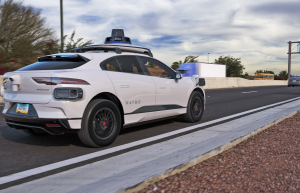
The new COVID variant strains are around 50 percent more infectious than the virus most commonly circulating in the United States right now. Although some doctors say, it does not seem to be more lethal for anyone who catches it.
READ: US Recorded Five Deadliest Days with More than 4,000 COVID-19 Deaths in Less than Two Weeks
The CDC released a statement stating that, unlike variants in the U.K., it has not seen the appearance of a highly infectious new U.S. strain of the coronavirus. South Africa as well. However, it noted that there are likely to be several variants emerging around the globe.
In an interview with "The News with Shepard Smith," Dr. Ashish Jha, Dean of Brown University's School of Public Health, cautioned that when it comes to a highly transmissible new COVID variant in the world, the U.S. is "flying blindly" and "guessing."
She said, "We don't know yet because we're not doing genomic sequencing of the virus in the way that the U.K. and other countries are," Dr. Jha said.
"We have a ton of capacity to do sequencing, it is not like we can't do it. We just haven't and we've got to get our act together and start doing this so we can know if there's another variant circulating in our country," she continued.
The latest version of the new COVID variant, classified as B.1.1.7, has been identified by at least eight U.S. states and 33 countries. An additional variant, first identified in South Africa, which also tends to infect individuals more easily, has also been identified by several nations.
ALSO READ: Washington DC Airports Tighten Security Following Suggestions to Ban Rioters From Flying
According to the CDC, the new COVID variant, first reported in the U.K., propagates more easily and rapidly than other strains. In Southeastern England, the strain was first spotted in September and accounted for a quarter of London cases by November. It was responsible for 60 percent of patients in the city by the week of December 9.
According to the CDC, SARS-CoV-2, the COVID-19 virus that causes the disease, acquires about one new mutation in its genome every two weeks. In the U.K., the version has multiple mutations that affect the "spike protein" that binds to human cells on the virus's surface.
The rise of new COVID variants could also restrict the effectiveness of therapies with a monoclonal antibody. Such therapeutics are very narrowly based, and a single mutation could theoretically be eluded.
Experts believe this raises the importance of vaccinating as many people as possible.
Some respected scientists have suggested that to get more people inoculated, the procedure for administering two-dose vaccinations should be modified, even if that means cutting doses in half or delaying the second dose.
This week, the Food and Drug Administration said it would conform to the two-shot dosage supported by randomized clinical trials.
Both viruses mutate, and the novel coronavirus, SARS-C0V-2, does not mutate rapidly or in an unusual way.
But the virus has had an ample opportunity to shape-shift spontaneously with tens of millions of people infected across the world, and natural selection does the rest, possibly giving the virus the ability to evade natural or vaccine-induced immunity.
READ MORE: Here's a Complete List of Senators and Representatives who Pledge to Object to Electoral Votes
© 2025 HNGN, All rights reserved. Do not reproduce without permission.








